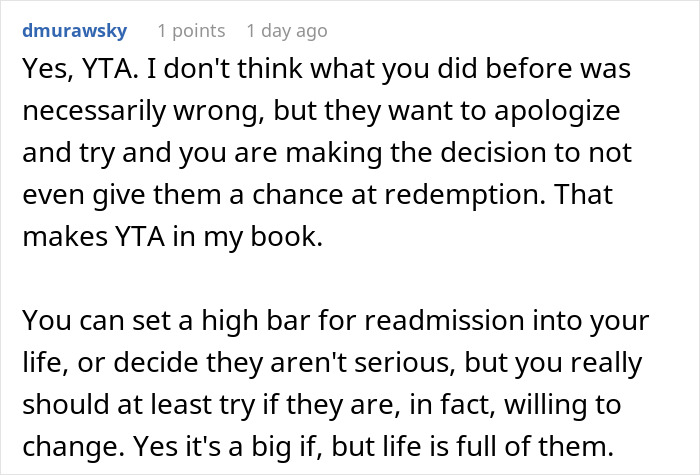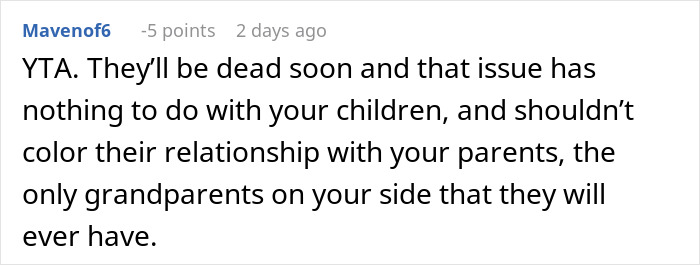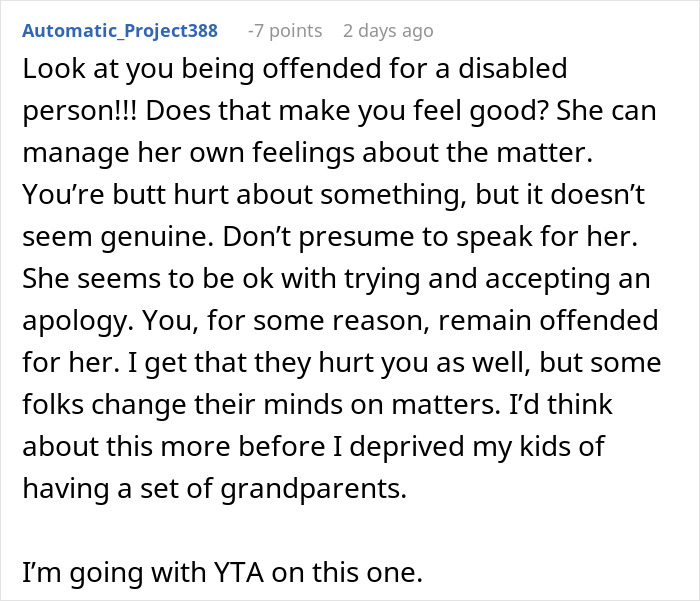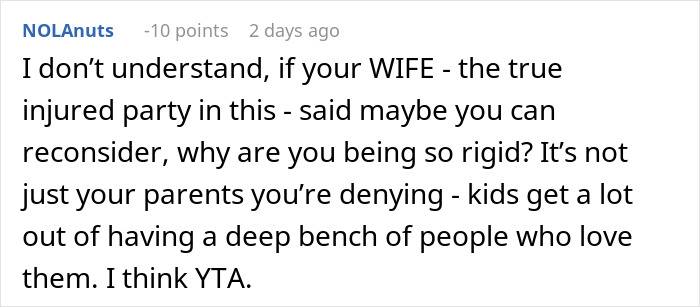Oh, how lucky are those whose parents accept and support the person they choose to marry? But sometimes, deep-rooted prejudice or ignorance can shatter that expectation.
One man thought his mom and dad would be happy to meet his future wife. After all, the woman has a big heart and a warm personality and shared his dreams for the life they wanted to build together.
Instead, they focused on a feature that had nothing to do with who she was as a human being — her deafness. I guess, in this case, it’s true what they say: the relationships that test us the most are with the people closest to us.
This man couldn’t forgive the way his parents treated his partner

Image credits: Alena Darmel / Pexels (not the actual photo)
So he cut them off
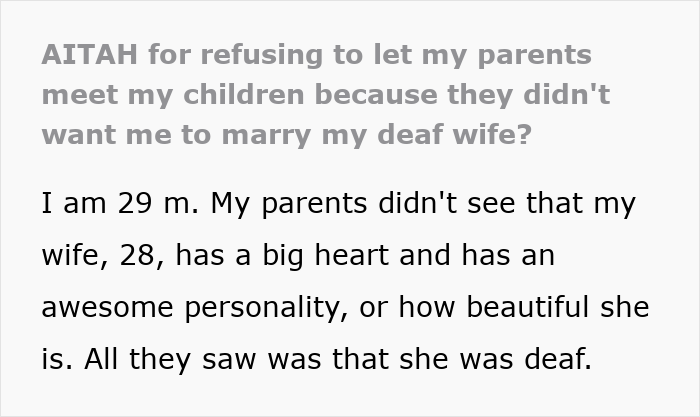

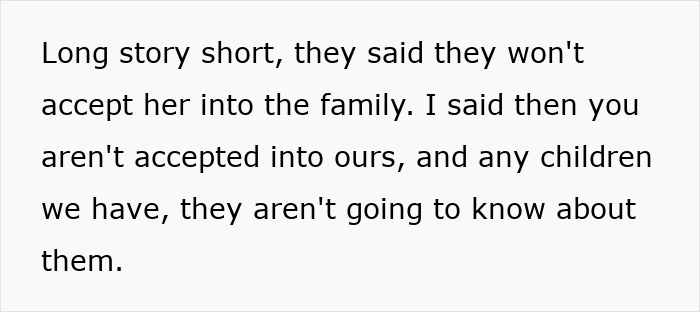
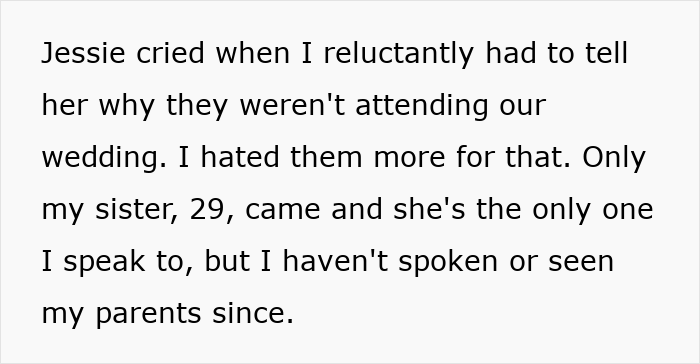
But now that the couple has kids, his parents want to be part of their lives

Image credits: tonodiaz / Envato (not the actual photo)
However, he isn’t ready to let them back in
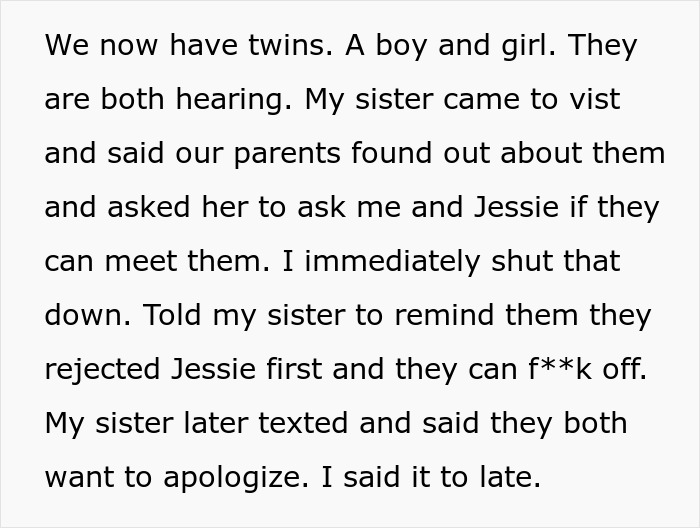
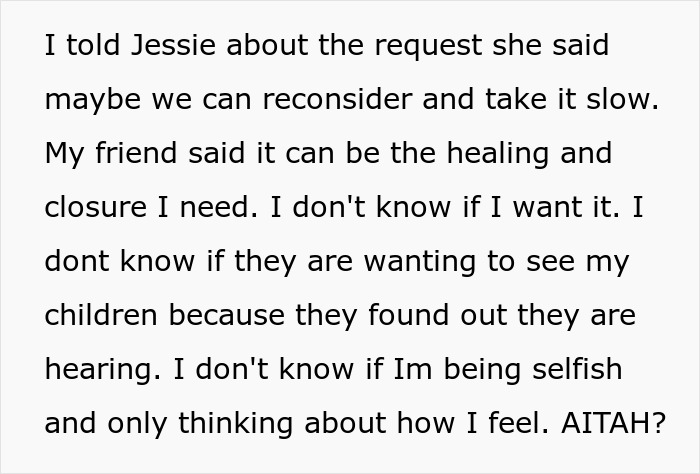
Image credits: KickVivid2074

Image credits: cottonbro studio / Pexels (not the actual photo)
Family estrangement is more common than one might think
Senior lecturer in psychology at the University of the West of England, Lucy Blake, PhD, shared insights on estrangement on the American Psychological Association’s (APA) podcast, ‘Speaking of Psychology.’ She said, as a research topic, the phenomenon is just gaining traction, referencing a larger-scale German study that found 20% of adults will go through a period of estrangement with a father, and 9% will get alienated from a mother.
However, the number differs from one country to another. Some suggest that older parents in the US are more than twice as likely to have a bad relationship with their children as parents in slightly less individualistic countries such as Israel, the UK, or the already-mentioned Germany.
Clinical psychologist Joshua Coleman, PhD, works with estranged families and has written several books on the topic, including Rules of Estrangement: Why Adult Children Cut Ties & How to Heal the Conflict and When Parents Hurt: Compassionate Strategies When You and Your Grown Child Don’t Get Along.
He argues that the increasing use of therapy has also played a role in dividing families, and not always for the better – some therapists may, for example, “diagnose” family members with psychiatric conditions without even meeting them, after hearing just one side of the story, despite the fact such practice flies in the face of ethical rules in the fields of psychiatry and psychology Coleman says he’s met many adult children who have, following therapy, accused a parent of being toxic, narcissistic or having borderline personality disorder.
However, cutting ties isn’t necessarily a bad decision. Many people have very good reasons to do so, particularly those who’ve suffered abuse.
A US poll of more than 1,000 people by Coleman revealed that non-familial relationships, such as friendships or romantic partnerships, have contributed to 12% of all estrangement cases. (For comparison, political beliefs were a factor in 18% of them, while communication, treatment of other family members, and other family dynamics played a role in 39% cases of estrangement.)
According to him, in order to move forward and gain at least some peace of mind, people have to understand the roots of their parents’. It might make them realize that not all of it was wicked or intentional, which could take some of the pain away.
That doesn’t mean we have to forgive them, or even have a relationship with them. But by gaining clarity, we may neutralize the sinister power of the murky past.
Most people don’t blame him for standing by his decision




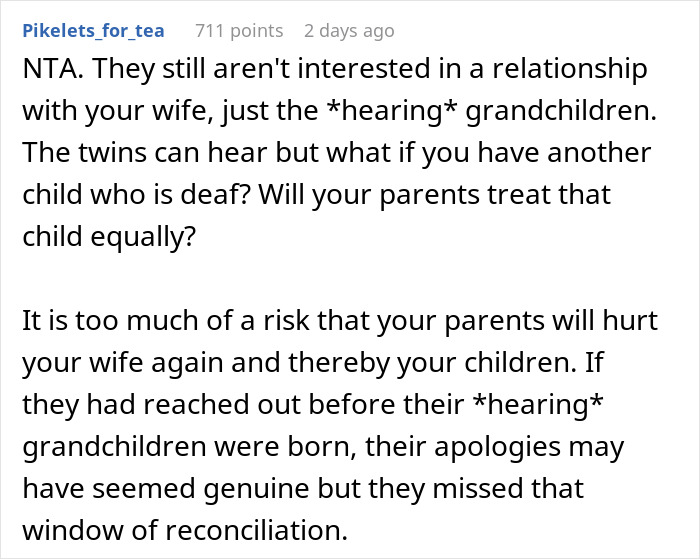

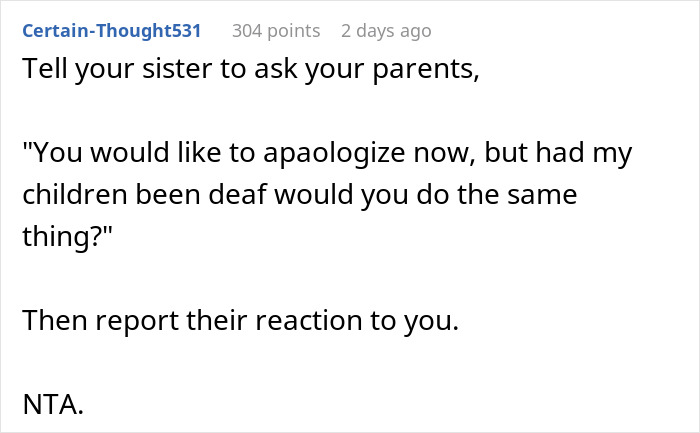
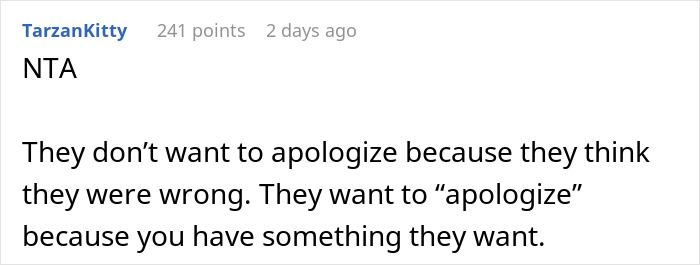
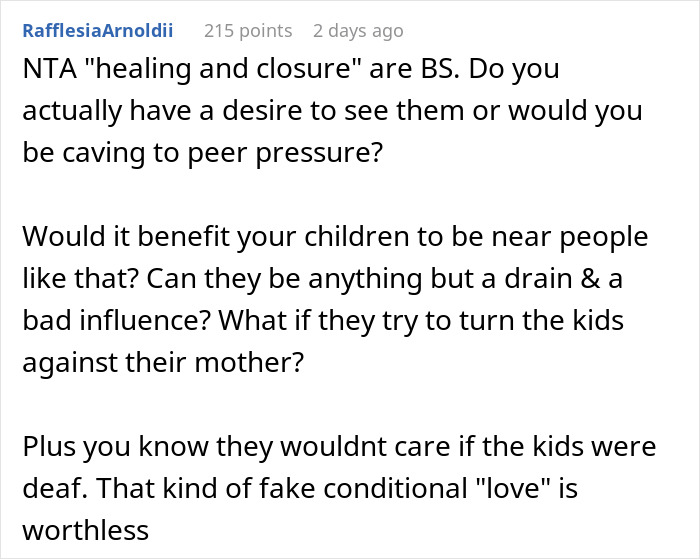
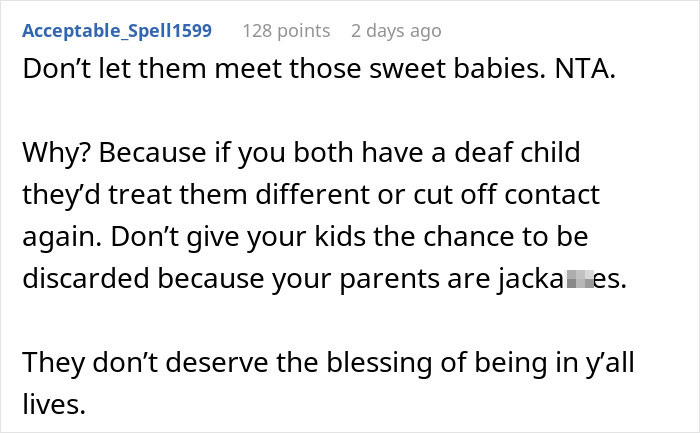


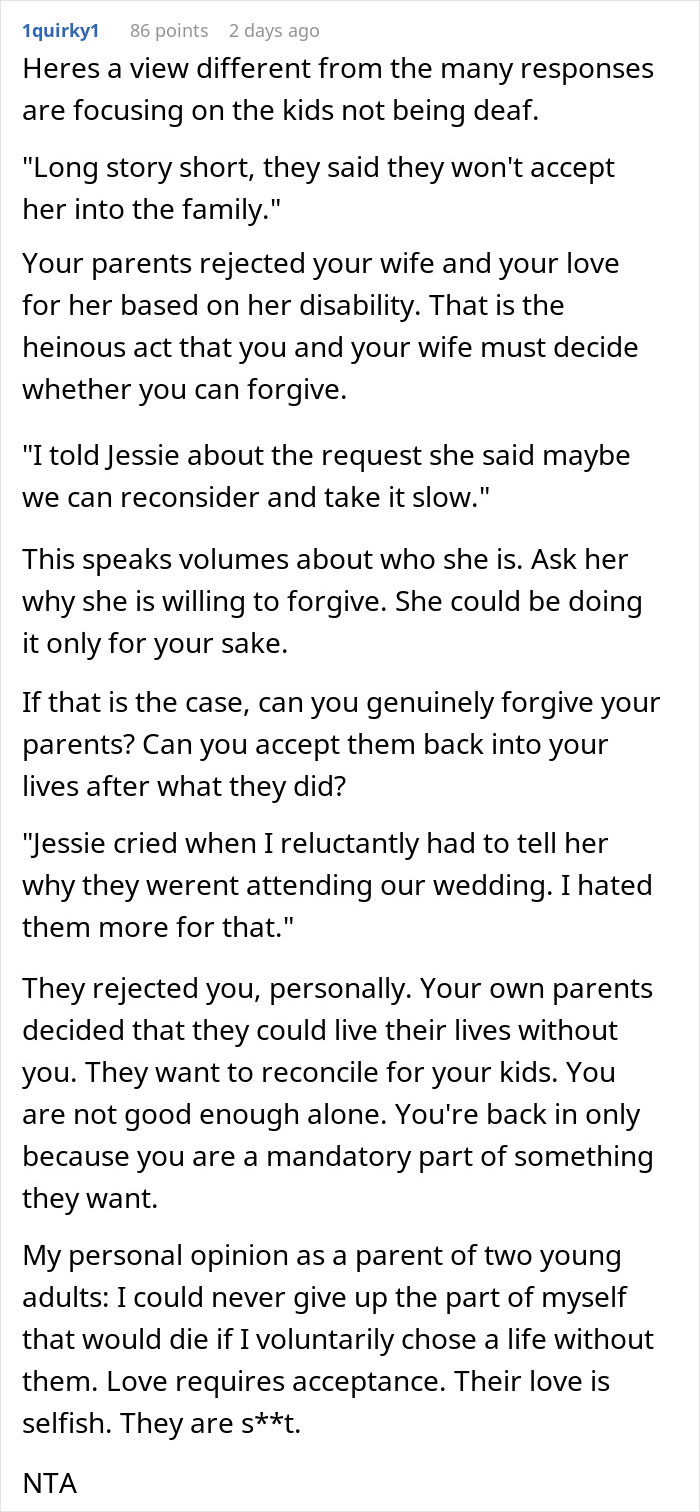
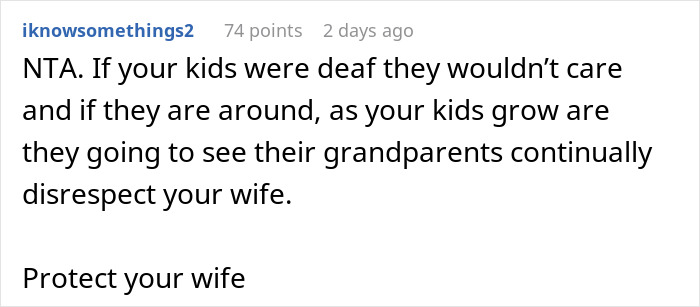
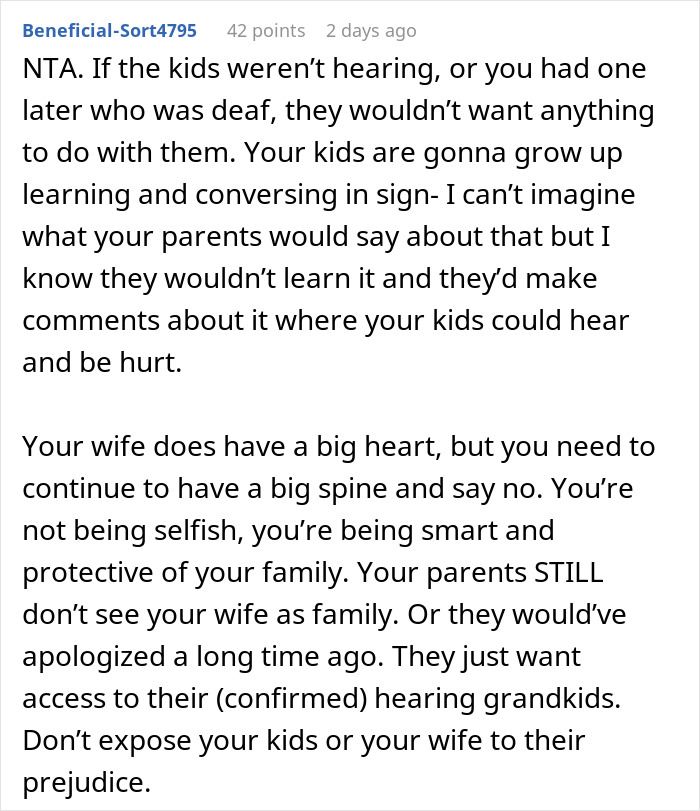
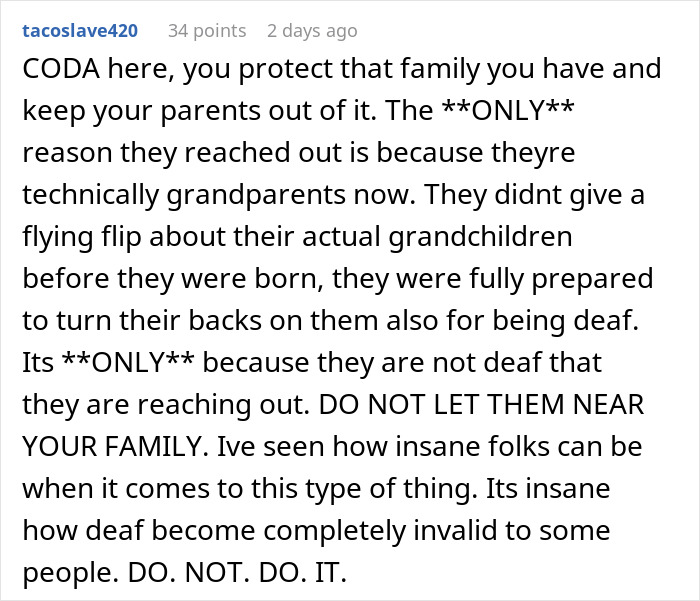
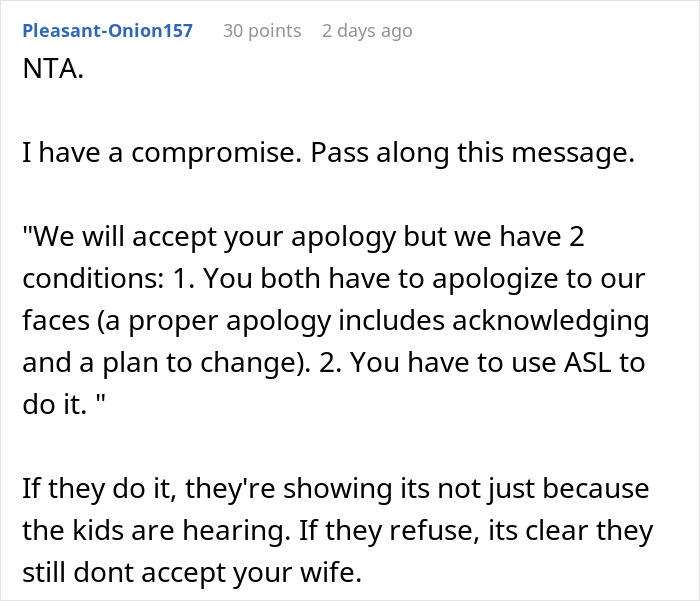
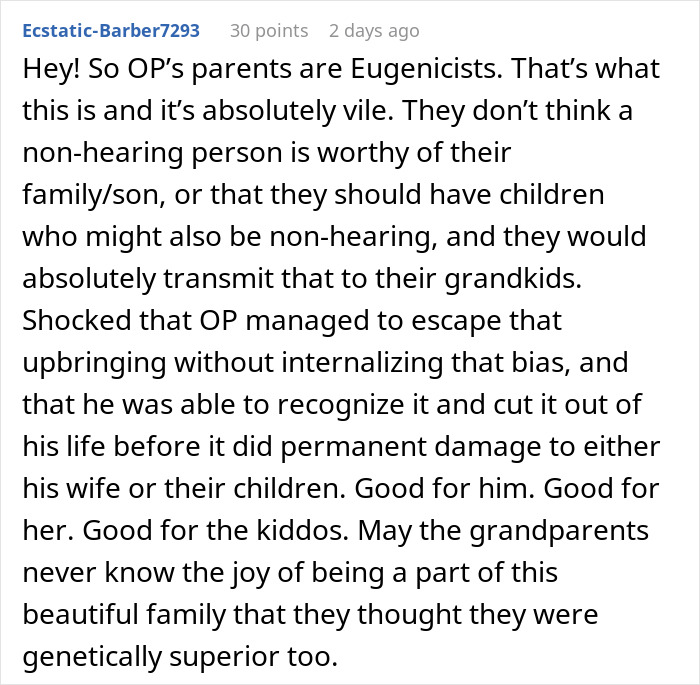
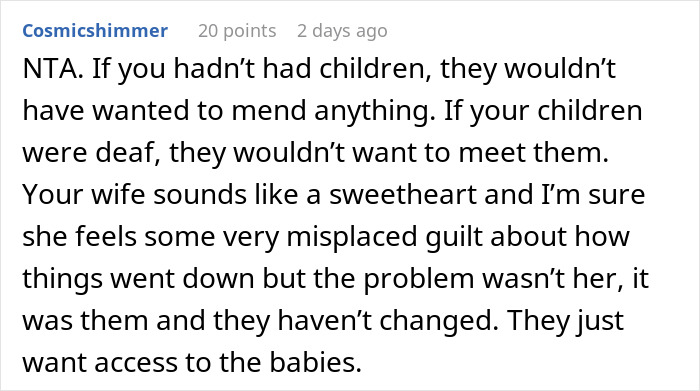
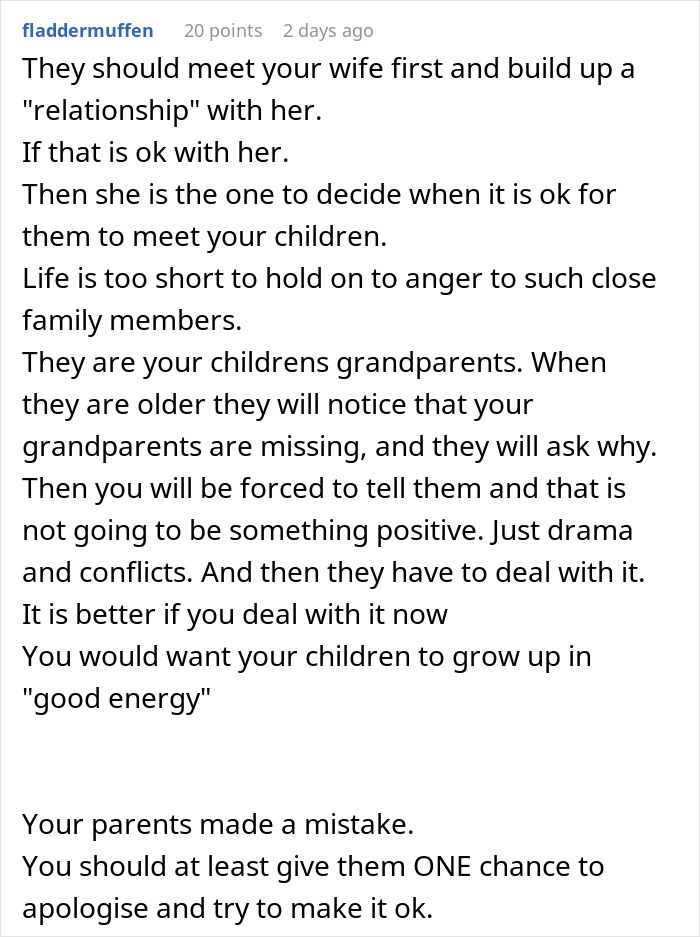
Though some wonder if he’s burning a bridge that can’t be rebuilt

